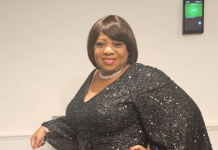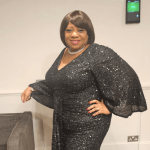With countless responsibilities, from the school runs, client calls, weekly grocery shop to admin and emails, mothers, businesswomen and entrepreneurs always feel like they’re falling behind. Working for one of the biggest mining corporations in Chile, Claudia Romero tackled the extensive list of expectations that comes with a corporate job, learning to reach an optimum level of productivity. The mother of three and entrepreneur, turned her expertise into a business, becoming a Time Efficiency and Productivity expert, helping other working mums to optimise their time to increase productivity, whether that’s in their home or business.
Never forget it’s a journey; you’re not going to get to where you want to be overnight.
Why were you inspired to become a personal coach to female entrepreneurs?
Once all three of my sons were at school and I had more time, I started my first business which sold clothing designed for people with special needs. As well as working on the business I did some volunteering at school, dealt with all my son’s medical appointments, and did all the usual mum and household things – which all seemed pretty normal to me until one day, a friend asked me how I managed it all. My friend – who had two healthy children, plus support from her family – said that she was stressed out and struggling. When other mums at the school gate asked the same question, it dawned on me that I might be able to help them become more organised and less overwhelmed.
Initially, I worked with stay-at-home mums who felt overwhelmed and helped them declutter, prioritise and put systems in place at home to help keep things running smoothly. Whilst I enjoyed it and felt I was making a difference, it occurred to me that my help would really benefit mums like me who run their own businesses, so I started to look beyond the school gates and network more widely. I soon discovered that a lot of small businesses run by women fail because the women behind them are exhausted.
My goal is to help women in business get the balance right, to streamline things, make the most of their time and – perhaps most importantly of all – make time for the things that make them happy.
As a serial entrepreneur, what would you say to women who want to take the leap and start their own businesses?
Just do it, there’s never a perfect time to start – you can always find a reason not to do it but push past that and take that first step. It won’t always be easy, but ultimately it will be rewarding and something you’ll feel proud of.
Get a plan in place before you start – think about what your goals are and make sure you have a clear purpose. Who will your business benefit from? Why are you doing this? It has to be something that makes you want to jump out of bed on the coldest, darkest, most miserable morning!
Try things that could work for you – if they get results, that’s great. If they don’t, move on. Do what’s right for you and your business. Never forget it’s a journey; you’re not going to get to where you want to be overnight. You might take a few detours before you reach your goal, you might even take a wrong turn or two – that’s fine. It takes work and it takes patience to make your business work, but it also takes you, so make sure that you take care of yourself and your well-being every day.

You help women to achieve a work-life balance, why is this so important now, especially as working moves online?
Although we’re individuals, we still need to interact with others to grow. Being able to exchange ideas, support each other or ask for advice from those with more experience makes a huge difference both emotionally and in terms of growing your business. Being a solopreneur can be a difficult and lonely experience.
With online and remote working becoming the new normal, you can be more flexible with your time, the downside is that when you work from home it can be hard to separate work life and home life. That’s why it is so important to be present and focus – don’t just be there physically, be there mentally and emotionally. Engage with your family and friends, and give them the attention they need. Taking time out for social interactions will help keep your stress levels under control.
How has your experience working in a large corporation helped you when starting your own endeavours?
It was a fast-paced workplace with a lot of tight, immovable deadlines, so I learned early on to be as productive as possible so that I still had time for myself and to relax. Because the job involved leading teams, I spent a lot of time looking for ways to motivate others and help them to manage their time and avoid burnout.
Once I moved to Scotland, even though I wasn’t working, I knew that I couldn’t sit around doing nothing – I get bored far too easily – so I started volunteering at the playgroup and school. When my youngest was born, because of his medical needs I had to focus on him. As he grew, I discovered that it was difficult to get nice clothing that’s easy to get a child with complex needs in and out of. It dawned on me that I couldn’t be the only mum with that problem, so I teamed up with a fashion designer and my first business was born. I was back to managing a team, as well as running the business, but now I also had to look after my sons, and run my home. It was doing all that – and being asked by the other mums how I did it – that sparked the idea for what I do now.
How did you navigate the cultural differences moving from Chile to Scotland? What led to this move?
Moving to Scotland wasn’t easy, I left all my friends and family behind, and my husband’s family doesn’t live here either – so we were completely by ourselves, but the worst part wasn’t the language, it was the weather… Even after 18 years of living here, I still suffer from the constant change of the weather and the long dark days in winter.
But I can call Edinburgh my home, we build our family here, we have met so many wonderful people that have helped us in our rocky path with a son that needs 24/7 attention, and although I miss my family, friends, Chilean food and weather, and still struggle sometimes to understand Scottish accent, I can say proudly that I feel welcome and we be living here for many years to come.

Your mission is to help women regain control of their lives and enjoy the important things in life, why is having some me-time so essential for working mothers?
Because you should never lose sight of who you are and what matters to you. You can have numerous roles in life, but you need to be clear about who you are and what makes you happy. If you’re happy, things tend to fall into place more easily – you’ll feel more energised and motivated. Your actions impact your outcomes.
For me, making time each day to do something that brings me joy has made a huge difference. It’s helped me keep my stress levels down and to be more focused, which in turn makes it easier to make decisions and move towards my goals. Making time for yourself doesn’t have to be a trip to the spa or high tea in a fancy hotel; small, simple, everyday things like a good walk, a nice nap, a relaxing bath, half an hour curled up with a favourite book, or even an impromptu dance around the kitchen can all do the trick.
You have three boys, all with differing levels of needs, how has being a working mum been for you?
I’m not going to lie and pretend it’s been easy, because it hasn’t! I love being a mum, and – as any mum will tell you – my children come first. But I also know that I love working and get a huge sense of satisfaction and enjoyment from it. It’s tiring, it’s challenging, but that would be the case even if my boys didn’t have special needs. Every working mum out there knows that whilst it’s hard to balance work and your family life, it’s totally doable.
I think for parents of children with special needs, the biggest difference is that we have to be even more adaptable and flexible – we have to factor in appointments and therapy sessions, and late-night emergency trips to the hospital. This need for flexibility and the need to be able to take charge of my own time is one of the things that motivated me to set up my own business, as even the most understanding employer could never realistically offer the degree of flexibility I need.
Whether you’re caring for your children, your partner or your parents, being an unpaid carer is exhausting and draining and can have a huge impact on mental health. I think that’s why I wanted my work to be something I really enjoy doing and which is emotionally and mentally rewarding. I only have a few working hours each day, and I can’t imagine spending that time doing something I didn’t love.

As someone who raises awareness for various issues, why is it important that you are vocal about disabilities and breast cancer? What can others do to help raise awareness too?
If you don’t live with physical or mental problems, you don’t always realise what it’s like for those who do. It’s not selfishness, it’s simply because it’s not your reality, so you don’t really think about it.
I was exactly the same until those realities became part of my life. Suddenly, I had to think about the world in a whole new way, and I saw just how difficult the world can be and how hard people have to fight for the bare minimum, for things that most of us take for granted.
I was determined to make a difference, to make my voice heard and to make people aware of the challenges faced by those living with a disability – and their families – face every day. Having a disability shouldn’t mean that you must stay indoors because the world outside your front door isn’t accessible to you. Things and places can be adapted, solutions can be found – change is possible. People need to understand that a park that isn’t accessible to everyone isn’t acceptable to anyone.
Workplaces should be able to provide solutions for employees with different needs. Businesses need to understand that they will ultimately benefit from supporting the needs of their staff.
I lost my father to colon and bowel cancer 25 years ago, so have supported cancer charities for a long time, as I wanted to help as much as I could. I have an aunt and one of my best friends that have breast cancer and now I have as well, and while things are a lot better than they used to be, there’s still a lot to be done to improve people’s chances of beating the disease.
Of course, it’s not only the people who are ill or who have disabilities that are affected by them. It also impacts their family and friends – it sounds awful, but ultimately, we’re all going to be affected by an illness or a disability in one way or another. That’s why we need to talk about these things, to raise awareness and take action. We can’t pretend that just because something isn’t happening to us, it’s not happening at all.
You don’t have to do anything huge; support the charities that matter to you, try to understand other people’s situations and – when and where you can – take action to make things better. It can all add up and make a big difference.
Working as a Productivity & Time Efficiency Coach, what have you learned about yourself whilst coaching others?
In my area of expertise, I’ve learned that each person is different so we never will get the same results even if we apply the same strategies, but that doesn’t mean that we are failing. It means that maybe something that works for someone needs to be tweaked to really work for me.
Coaching others has taught me that I am a very patient person, that I really understand what my clients are crossing and that although the easy way to help would be to give them solutions, that wouldn’t be the best way, because the solution, have to come from the client. But you can help them reach those AHA moments quickly and easily through coaching.















